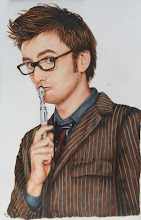 I’ve recently read this one and I thought I’d just post a couple of reactions to it that chimed with my gamer side.
I’ve recently read this one and I thought I’d just post a couple of reactions to it that chimed with my gamer side. You’ve probably not heard of Ruckley – this is his first book, as far as I know, the first volume of a trilogy (why do fantasy novels come in threes?) and he’s just released a new one about the body snatchers of Edinburgh. Must check that one out as well
The setting for the Godless World trilogy is Dark Ages with impressive scenery – Ruckley can make me ‘see’ his landscapes in a way I’ve not experienced since LotR. The first book is set just as winter begins, hence the name, and whilst it’s got some brutal scenes in, with unexpected deaths and cynical betrayals, there seems to be no language NSFW, which is quite refreshing. Ruckley also knows when to cut away and not revel in the gore.
There’s very little magic in this one. We’ve got humans, elf equivalents and half-elves who seem to be equally despised and distrusted by both. The elves and half-elves have something called the Shared, which seems to be very like the Force (even to the point that one character refers to feeling a disturbance in the Shared) but anyone growing up since 1977 is going to find that sort of thing hard to shake off.
What is quite ground-breaking here is that the elves (and I’m using that term rather than the in-book name, which will mean nothing to anyone who hasn’t read it) are tribal in organisation and more or less hostile to each other, to the point at which they launch raids and attacks on each other’s camps and territories. Some are nice elves, some are rather nasty – I was minded of the inter-tribal hostility of the Indians in Last of the Mohicans when I read this. They are also enlisted by the humans as guides and allies during their campaigns (again, another North American reference) but take offence quickly and easily and drop those who they don’t get on with.
There’s also precious little in the way of religion here (or priests); the series title “The Godless World” refers to the fact that at a certain point in the past of the world, the gods abandoned the races they had created; part of the driving force behind the wars that course through the books like a dark heartbeat is the effort of one particular sect to convince the gods to return. There are five specific races in the books, only two of which (humans and elves) we really encounter in Book One. There’s reference to what might be a race of werewolves, attacked and wiped out by a human/elf alliance in years gone by, and that’s something I hope we learn more of in subsequent books.
The whole thing weighs in at 539 pages and whilst it could probably have been shorter, I didn’t feel that at any point I was skim-reading. There are maps (which I found I was glancing at quite regularly) and a list of characters (which, until you’ve got your bearings, you’ll probably be checking on too). I’ve got the second one lined up and ready to go after I finish Songs of the Earth (and I’ll give you a review on that one too).





Good review DG. I picked up the first title for 50 cents (ex-library) and enjoyed it enough to then borrow books 2 and 3 from the library. It was grim and gritty enough that I didn't feel I could predict the ending. The elves as thinly disguised native Americans bugged me, but I liked the series nonetheless. The author even managed to give it an apocalyptic feel.
ReplyDeleteSounds absolutely perfect for my tastes! Thank you very much for the recommendation!
ReplyDelete